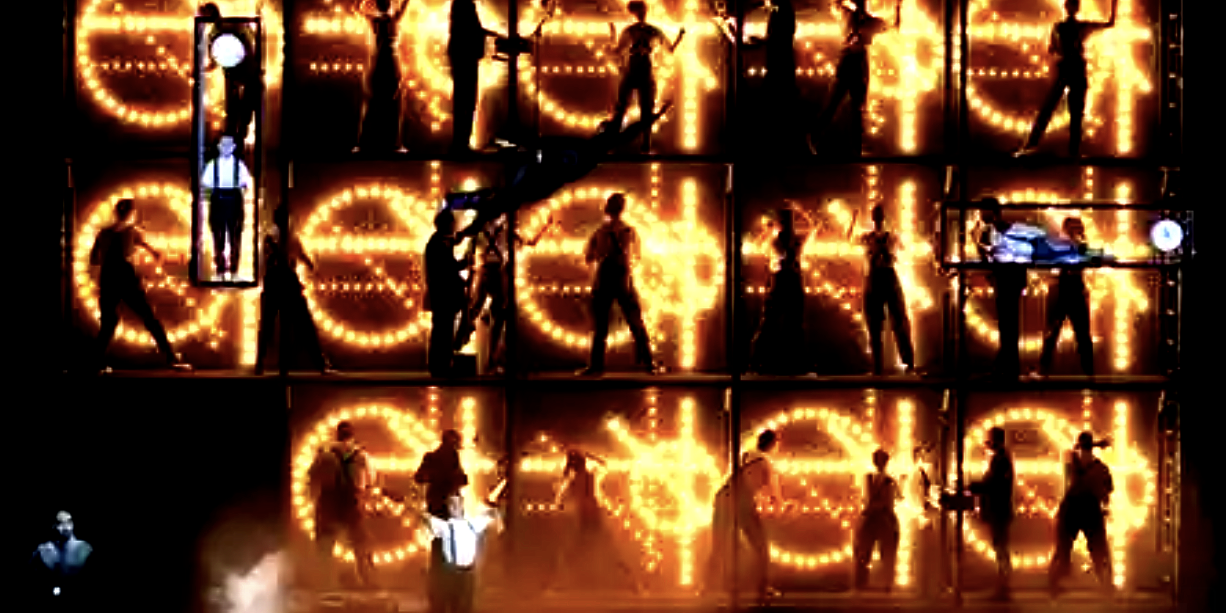
Opera: “Einstein on the Beach, by Philip Glass
The future of entertainment is technology
3nd August 2023
Who doesn’t like Opera?
The finest form of human expression and a full-on assault on the senses. Like spending time in Cuba, it is hard to sum it up in ways any non-fan would accept. Maybe it is really an opportunity to nod off, spending five hours (with no break) listening to Philip Glass’ Einstein on the Beach. Opera is always sung live. With a full orchestra. On a stage, in a theatre, with people in the audience. With lots of silly costumes, plenty of wailing and some inevitable blood, death, and heartbreak. What joy! Gimme more…
Why spend precious time in this way? Because it is a form of entertainment and people like being entertained. Don’t get me wrong, I am also fairly obsessed with music, art, architecture, fashion, theatre, film, TV, etc. Less so, golf or football, but let’s leave sport for another day. The future of sport might be technology too.
Opera is always concentrated on the power of the human voice. Never amplified, just sung beautifully. When several performers are in harmony it is hard to beat. Think of La Traviata’s Brindisi. What better an introduction than a song about drinking? But even in Opera, there is technology. Sure, no amplification, but lights, hearing aids, autocue, prop movements?
Now let’s imagine Abba Voyage
Abba Voyage is a whole new dimension. When the idea was being pitched, I and others, thought it had no chance. How could an audience in a theatre have their attention secured for any length of time without real people on stage? Maybe a mildly entertaining diversion – as an insert into a proper show or concert. But not a 90-minute spectacle where the whole thing is performed by 3D holograms (known as Abba-tars). And a sell out at that.
Performed in a specially built auditorium in London using a giant 65m pixel digital screen, Bjorn and co spent months creating it, dressed in motion capture suits with 160 cameras filming their every move. Nearly a million people have already seen it and tickets are hard to get. The opening night must have been something. Abba themselves took a bow, and King Gustaf of Sweden and Queen Silvia were there too. Dancing Queen indeed.
Abba Voyage is a great example of the imaginative use of technology to not just enhance the entertainment experience but to totally be it. In between Opera and Voyage there is a lot of white space.

“Abba-tars”: Abba Voyage, the latest motion capture innovation
‘An opportunity to fully immerse yourself in not just the film of choice, but to behave, dress up and act as though you are actually in it’
Fabien Riggall created something truly unique when he started Secret Cinema in 2007
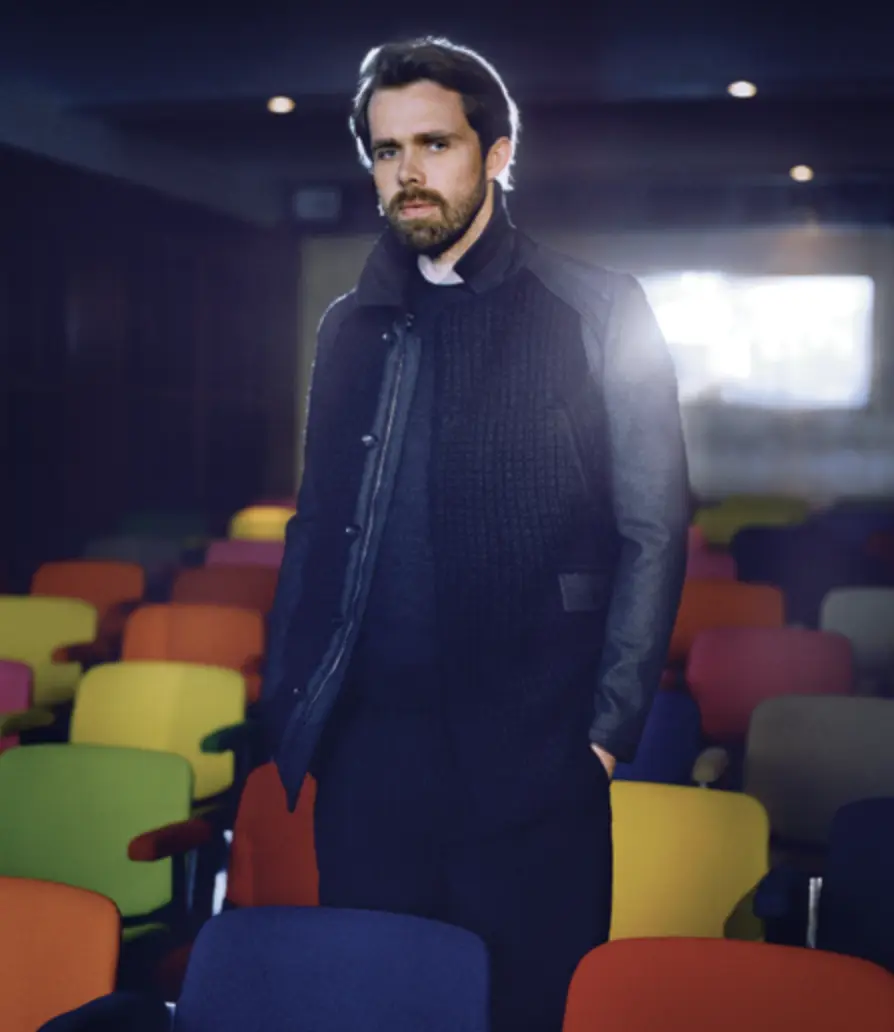
Most people who have experienced one of his 400+ events will be wildly positive about how amazing it is: an opportunity to fully immerse yourself in not just the film of choice, but to behave, dress up and act as though you are actually in it, as though you were being rounded up by Imperial Stormtroopers. His craftmanship and ingenuity is widely admired.
But it was felt by some to be more limited from a business perspective. It seemed hard to scale – each event, with a short run, needed dozens of staff to administer, control and steward. And each event tailored and handcrafted individually. When Active Partners bought a controlling stake and began their magic of creating value, I thought, ‘That’s brave!’ but I was also secretly jealous. When they sold it in 2022 for a reported $100m, I couldn’t have been more surprised.
They found radical ways of using technology to blur the lines between actors and audience. In 2021, Riot Games joined the party by bringing players directly into show, Arcane, during an in-person Netflix Secret Cinema experience in Los Angeles. They evolved the idea of being entertained passively and didn’t just immerse the audience but made them part of the very entertainment that they came to experience.
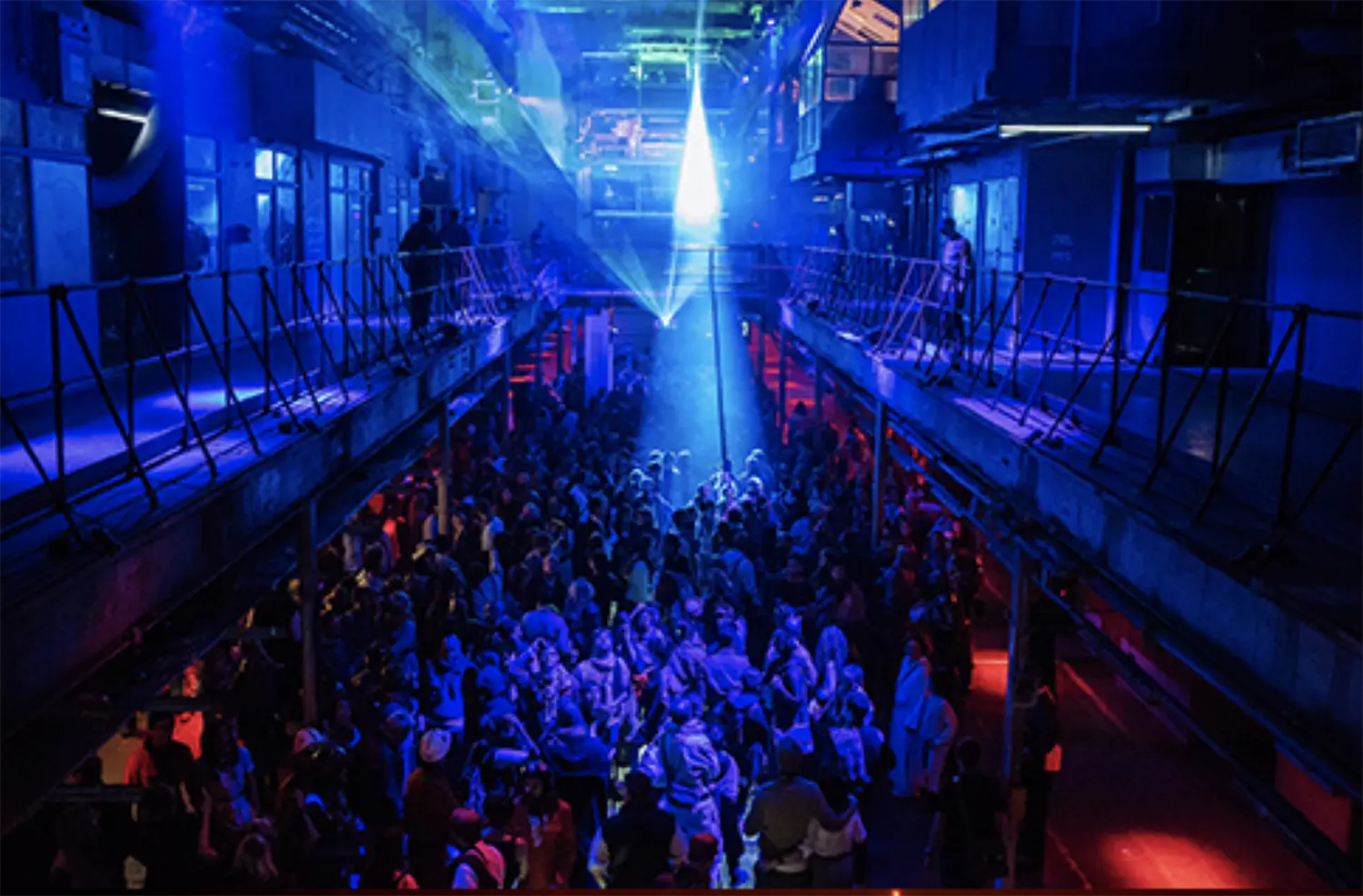
Five times the size of the film industry
Many users of virtual worlds think immediately of the gaming industry. Famously larger than everything else. Estimated to earn $180bn in revenues this year, so about five times the size of the film industry and bigger than video and music combined. If you are interested in digital gaming, you should watch the annual BAFTA gaming awards. It is the sheer range and diversity of what is on offer that startle. Games designed to appeal to all age ranges (including pre-school children as well as old teenagers, like me) and all demographics. The types of games are also a surprise. If you are not a gamer you will still have come across Pokémon, Mario Kart. Maybe Grand Theft Auto or Call of Duty. But what about Unpacking (EE Game of the year) or Ratchet and Clank? All of these are winners. Maybe you are a casual phone game player, enjoying Angry Birds or Clash of Clans while sitting in a boring Zoom meeting. There is of course that politician who watches salacious material while sitting in the House of Commons. Let’s not go there, but we have all been bored…


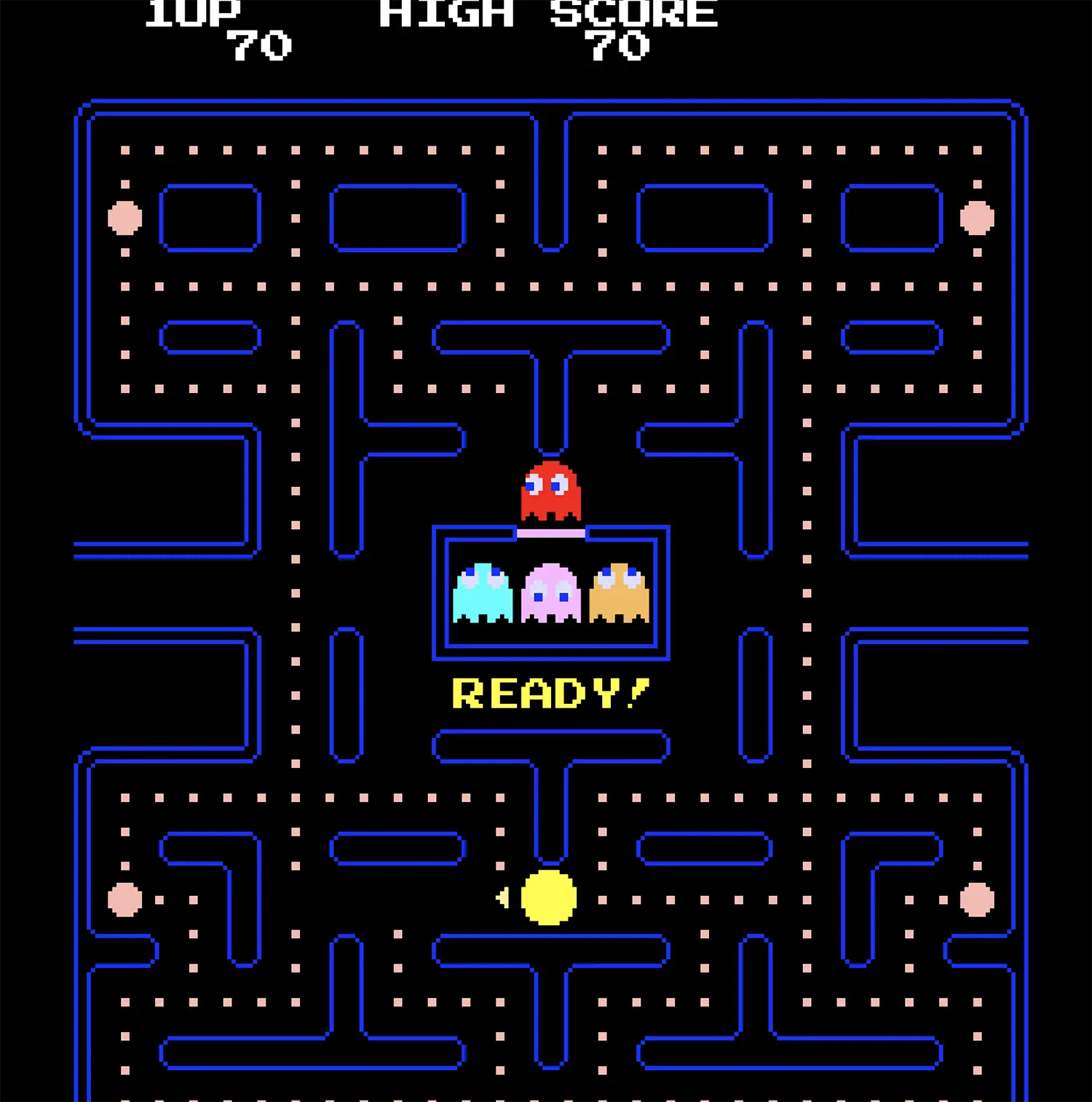
Or perhaps you got off the bus at Pac Man and Space Invaders? In Wardour St in the 70’s an amusement arcade, just north of Brewer St called Las Vegas, was used by nascent arcade games machine makers like Sega and Atari, to try out their newest game machines on an early adopting Soho youth, to see which things worked the best. They were slot machines, so 10p pieces were the early business model for games. I was hooked on Gorf which was a step up from Space Invaders but based on it. I still have an arcade machine at home but, to be honest, it is hard to get any of my five children to spend more than a few minutes on that great lump of a machine, because it is now so passé. So stuck in the past, and easily eclipsed by the plethora of formats, machines, experiences and excitement on offer, whether in front of the TV, in the bedroom on a laptop, on the move, or in one of the emerging and fast-growing Location Based VR (LBVR) offers. And now there are levels of realism unimaginable then. And you can shoot not just a single zombie, but your entire address book, if they are playing too. Or indeed anyone in the World. In real time…
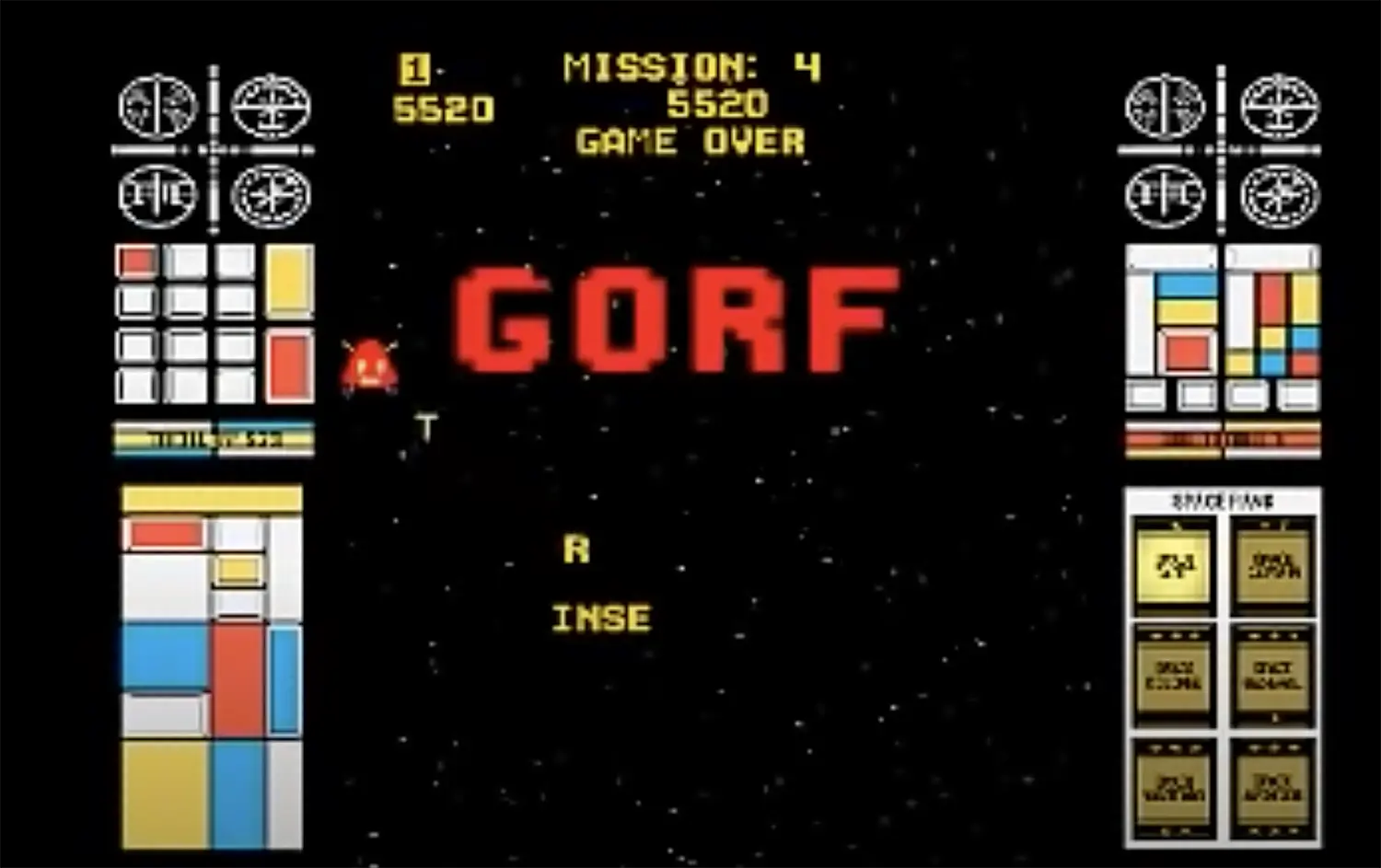
The thing is, there is no limit to the breadth of creativity that developers can summon. And no end to the huge variety of commercial models that the big games behemoths have developed to earn huge returns from consumers’ propensity to get hooked. Pokémon became the highest-grossing media franchise at $75 billion, beating other franchises like Star Wars and Marvel. Sony’s PlayStation, Nintendo, and Xbox have shipped around 100 million machines each. The games keep getting better. So do the machines and formats. And the business models are in a constant state of flux. No longer 10p slot machines, it’s all about subscriptions, in-app purchases and loyalty and repeat purchasing are key. Increasingly consoles are just another type of cloud portal. And NFTs offer a whole new world of excitement – not just as collectables, but as tools to reward loyalty and offering increasing levels of utility to the owner.
Similarly, from a user perspective, there is no limit to what appeals either. We are all different and have widely divergent interests, passions and levels of tolerance. We all have different budgets and amounts of free time. One thing is for sure. People are willing to spend more and more time; and more and more of their disposable income, experiencing virtual worlds, whether they are fully immersive, or just using their phone or laptop to play a quick game.
‘Technology is all pervasive in our experiencing of entertainment and the metaverse steps that whole thing up a notch’
And there is no going back
In the world of TV, who would like to watch it in black and white now? Or in mono when you have become used to your stereo soundbar or surround sound? And in Cinema who would rather go back to the silent movie era or narrow screens when full-on widescreen is commonplace, so is IMAX and Dolby Atmos sound quality? In a nutshell, technology is all pervasive in our experiencing of entertainment and the metaverse steps that whole thing up a notch.
I recently had a tour of in-person VR experiences in LA. There are quite a few. Some are short: 15 or 30 mins. Some an hour or longer. The tech on offer also varies: Many just require a VR headset and handheld controls, but some require donning elbow and knee sensors, or electronic foot covers to more fully capture the players’ movements, depending on what the experience requires. Some require sitting in a specially built machine e.g. for car racing.
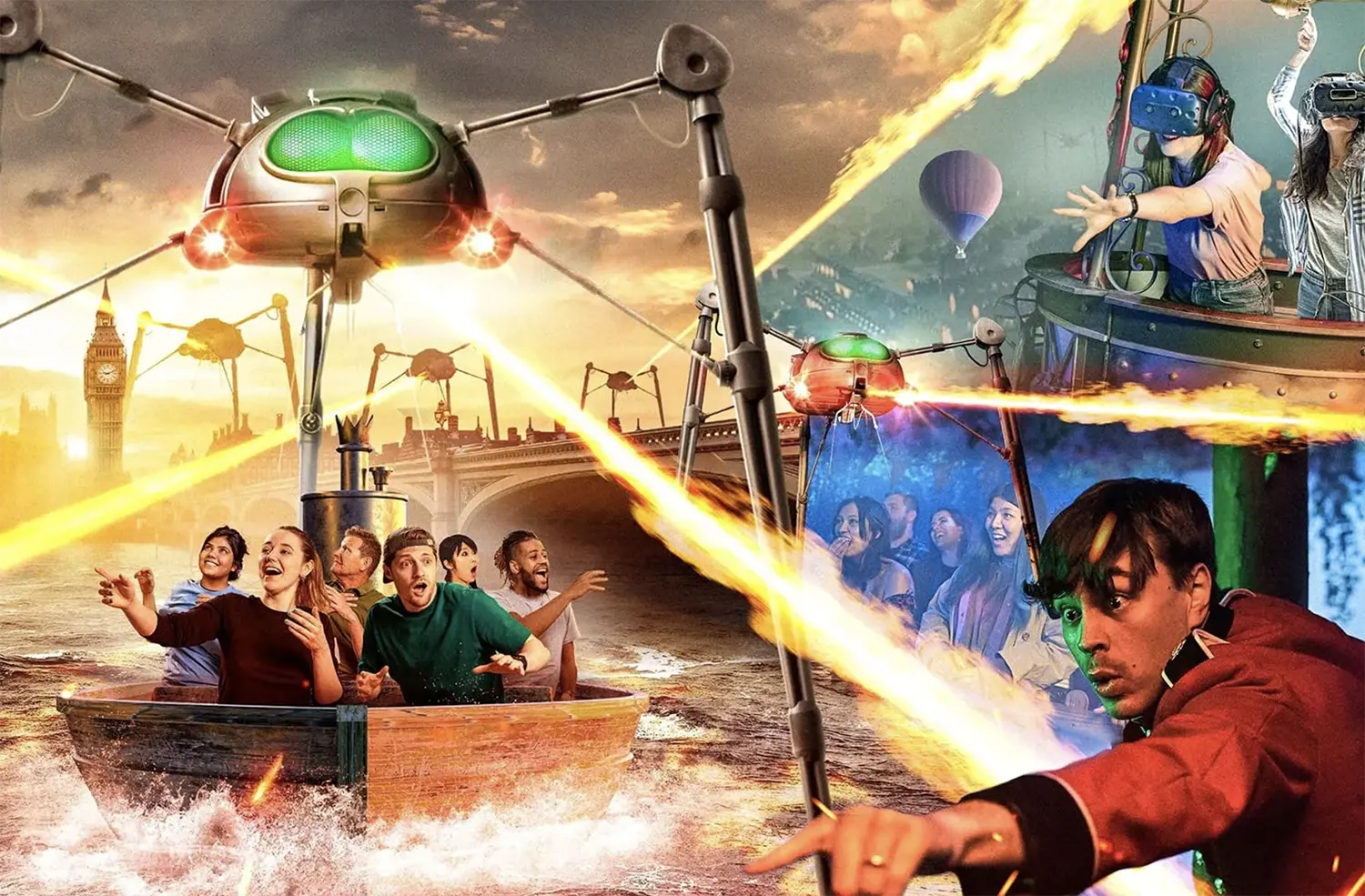
The War of the Worlds in Leadenhall St, London, UK
In London, the War of the Worlds in Leadenhall St, makes the most of that enduring story and of Jeff Wayne’s hit music. It occupies an hour and a half as the audience moves through a series of interconnected rooms, to lap up passive theatrical performances, some immersive theatre or donning a headset for certain parts of the story flow. Even climbing in a boat and actually getting wet. While wearing the electronic hardware, what could go wrong? You know the story, there are aliens and lots of blood…
‘It’s modern-day Opera really’

Edge portfolio company DreamCorp are showing another way. In their three current UK locations, soon to be four, they have perfected an experience called Other World which seems to produce good and scalable returns, is relatively light touch and is highly enjoyable and addictive. Like a short flight, ‘passengers’ check in and at the appointed time, enter a pod, solo, with the headgear and handsets; and are then transported to a virtual island. There they can then choose from 20+ VR experiences, which range from soaring over the world enjoying Google Earth in 3D, satisfying their tourism fetish without going very far (it’s very soothing); to a seemingly real-life zombie attack/’shoot em up’ game.
My first experience of VR was served up by the BBC’s own R&D dept in 2012 when Oculus was a start-up and Google were trialling their cardboard headset. Oculus of course is now part of the Meta family and there are many other hardware offerings to choose. An issue for anyone in this space is the possibility that your hardware choice becomes unfashionable, or just out of date. Or that users simply prefer a totally different type of experience. Remember Betamax, Bebo, Second Life, Myspace? But along the way it is hugely enjoyable to try them out.



Not everyone is going to want to experience the metaverse in this way anyway. Or, indeed at all. Users are all different and they will adopt different types of experience at differing rates. TV was introduced in the UK in 1936 and for 30 more years was only available in black and white. Incredibly 50 years after colour became available, there were still tens of thousands of UK households that only had a black and white TV set. Yet, in that same year, more than half of all households had hundreds of channels, decent broadband and regularly used social media.
‘Modern technology doesn’t just enhance the entertainment experience; increasingly, it actually is the experience’
My central point here is that the use of technology is increasingly essential in the provision – and enjoyment – of entertainment and the extent of it is an ever-changing continuum. Devices, software, content and business models are all continuously evolving. So are the users. Some will want to be at the forefront of innovation and some at the back. What is clear though, is that modern technology doesn’t just enhance the entertainment experience. It has become an essential part of it. And increasingly, it actually is the experience. Either way, none of us can live without it.
It is fine now to wonder what to do on a Saturday night and to choose equally between a film, a beer, or to spend time in a virtual world. I suspect the latter is going increasingly to win.
The future of entertainment is technology

Guest editor John Smith, former CEO of BBC Worldwide, former COO of Burberry and currently Chair of Seeker Music, writes exclusively for Edge.
John has over 40 years’ experience in media, entertainment and consumer businesses. He was CEO of BBC Worldwide Ltd, credited with a quadrupling of the company’s profits and has been Chairman of UKTV and of BBC Studios. Prior to that John was both CFO and COO at the BBC. More recently he was COO of global luxury brand, Burberry and on the Board of Burberry PLC. John currently chairs a number of companies in TV, digital media, music and consumer goods; and is an angel investor. John is Honorary Fellow of the Royal Institute of British Architects, was Vice President of the Royal Television Society and a Director of BAFTA.
Tell us what you are building
Edge supports founders from all parts of the creative economy. If you are interested in partnering with us, please get in touch using the form below.
